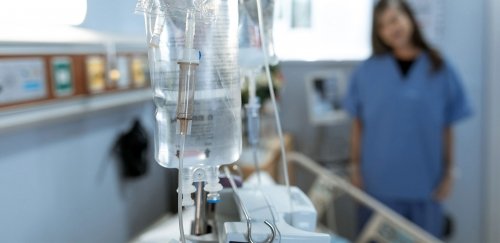Admission and Course Information
Here we provide information on admission and course requirements, course descriptions and the handbook for MSN Graduate Students for you to review.

If you're interested in pursing our MSN program's Adult/Gerontology Acute Care Nurse Practitioner (NP) concentration, the application deadline is now June 15. (Our two other concentration options have rolling admissions.)
Our Masters of Science in Nursing program provides 3 sought-after concentration options.
Students may choose the adult/gerontology acute care clinical nurse specialist (CNS) area of study or the adult/gerontology acute care nurse practitioner (NP) area of study. Students who successfully complete this program will be eligible to apply to take the following certification examinations: the American Nurses Credentialing Center Adult Acute exam, the American Association of Critical Care Nurses, Adult-Gerontology Acute Care NP exam, the American Nurses Credentialing Center Adult/Gerontology CNS exam, the American Association of Critical Care Nurses Adult/Gerontology Acute CNS exam.
Students who successfully complete the population/public health area of study will be eligible to practice in leadership roles in the community and as nurse educators who instruct community/public health nursing in academic settings.

The baccalaureate degree program in nursing, master’s degree program in nursing, and Doctor of Nursing Practice program at Rhode Island College are accredited by the Commission on Collegiate Nursing Education.
Applications are submitted online, beginning with signing up for an account with CollegeNET. Once you have a CollegeNET account, you will be able to log in any time and see your Activity Log which shows you a personalized status page.
Nurse Practitioner Option – Application Deadline Now Extended
If you're interested in pursing our MSN program's Adult/Gerontology Acute Care Nurse Practitioner (NP) concentration, the application deadline is now June 15. (Our two other concentration options have rolling admissions.)
Here we provide information on admission and course requirements, course descriptions and the handbook for MSN Graduate Students for you to review.

